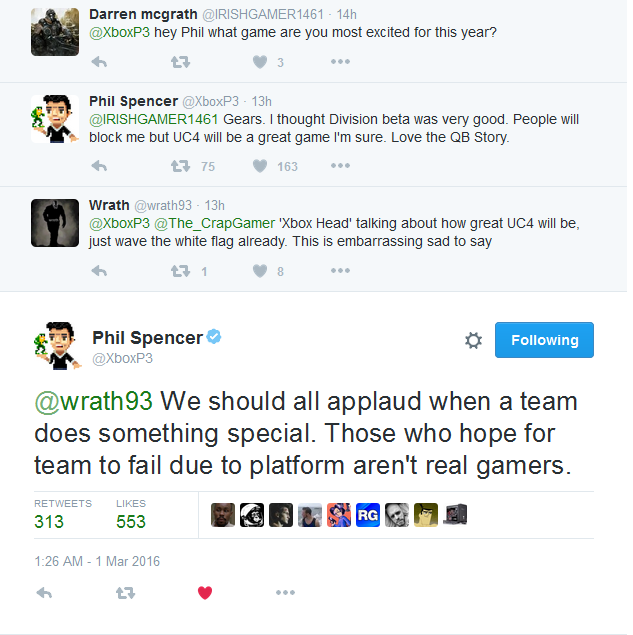Cross-posted from the PS4 thread because I didn't want to derail it any further than it already had been:
Of course it's related to that. But you can't pretend this decision to "unify platforms" isn't code for "our consoles haven't sold enough so we're releasing everything on PC now too". The knock-on effect being "hey Playstation, after years of telling you to go fuck yourself let's allow players to play together since older online titles will be unplayable if we don't piggyback on your userbase too".
Also there's talk of them selling these games on PC exclusively through the Windows store and using the UWP API to block certain applications. They've tried to go in that direction before and nobody will be surprised if they do so again. Epic are going nuts about it. Here's a Jimsplanation:
I don't think you can pretend that the sole reason (or even the main reason) for this move is due to the idea that "our consoles haven't sold enough", especially given that this has been Microsoft's initiative back when Windows 8 was still a thing and the 360 was at its peak.
Also important to note is that XBO growth is still paced well ahead of the 360 within the same time frame, and the userbase growth is just as robust - the only problem is that it's not as meteoric as the PS4's (which I'm pretty sure is breaking some sort of history record), and
no first-party platform holder is going to boast sales data out loud when they're sitting in second place to their direct competitor. The idea that Microsoft are somehow afraid that their userbase isn't big enough for software retention is anecdotal at best.
Another thing is that Tim Sweeney (not as a representative of his company, but as his own man) wrote
a much less dramatic article on the nature of UWPs and how to make them A Good Thing, after he cooled down post-Guardian editorial. As it stands currently developing through the UWP system is entirely optional and side-loading of apps through non-Windows Store means is enabled by default (a change they implemented in an earlier build of Windows 10).
Even Sweeney mentions that the potential is there for better security and better ease of use for those who aren't willing to engage in the fiddly bits of PC gaming (aka everyone who isn't a professional or an enthusiast aka a large portion of the gaming population), but there just needs to be more time and explanation involved in Microsoft's future policy. In its current state the "walled garden" that Gabe Newell complained about way back when and which is being echoed here is just the same level of conjecture based on what
could have happened last time.
Durante's complaints and issues are entirely valid (the lack of moddability is a major sticking point which continues to concern me) but even on the aspect of performance problems, progress is being made. Things like forced V-sync and lack of SLI support
are already being directly addressed. Rise of the Tomb Raider was pretty much the very first AAA game to be released alongside the current app-focused structure of the Windows Store, so it doesn't seem implausible that problem elements will be improved over time.
Plus, given the
overwhelming financial sucess (/s) from their attempt to lock out RT from Win32 useability completely, I strongly doubt that Microsoft are going to somehow abolish or phase out Win32 application development anytime soon, much less even attempt to shut out competition from other digital distribution channels like Steam (which practically holds a monopoly on the PC gaming space at this point). Seems like a really distant point at the bottom of this incredibly theoretical slippery slope given their complete failure the first time around, unless (as Sweeney said) the UWP API incentivises its use with the same openness and a similar degree of ease of access that the Win32 system uses.




 I'm looking forward to trying the free-to-play Forza "Apex" taster/demo/whatever when it comes out.
I'm looking forward to trying the free-to-play Forza "Apex" taster/demo/whatever when it comes out.